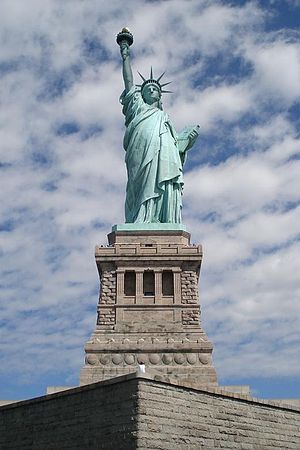 We send them money, they send us more or less everything. Simple.
We send them money, they send us more or less everything. Simple.
Actually there’s a lot more to it than that. It may seem that our money is going there never to return (except in the form of loans and – perhaps – investments), but China’s increasing wealth is little more than a side-effect of the highly integrated role that it now plays in the world economy. China is a machine for transferring wealth all right, but while some of it goes to the rich in China and some even goes to the poor there, most of it flows from our poor to our rich, here in the West. It’s the great money pump. As such it plays a very useful role in the destruction of democracy, by democracy.
Think back to those far-gone days when Capitalism seemed to actually work. Owners of businesses would employ people who would then be able to buy things from businesses. It was a two-way street and it worked well enough. The owners arguably got more than their fair share and working conditions were downright dangerous in the early days, but overall it was a benign circle where people saw their incomes rise.
It began to fail only when everyone, more or less, had a job. This meant that the labour supply was no longer an endless resource, and that very much strengthened the position of the “working class” in their campaign for a bigger share. Labour was still a renewable resource though, so at this point things might conceivably have reached an equilibrium. But capitalism is driven not by profit, as you might assume, but by increasing profit. Its most powerful members after all are not those who create wealth, but those who have it already. Investment will go not to what might make a sustainable economy or society, but to whatever can return the biggest immediate margin.
And one of those things was China, where labour seems again to be in infinite supply and working conditions can be just as dangerous as the good old days. Now instead of paying people in their own countries, businesses can pay people in China to make things to sell to the people of their countries. As owners of the patents, the brand names, the “intellectual property”, they still get the lion’s share of the profit from these Chinese-made goods. The transfer of wealth thus becomes a one-way street, from the poorer to the richer in our society, with China merely taking a commission as agent.
Most people in the West are still employed of course, but more and more they’re employed in secondary jobs that have little control over the production of actual saleable goods. I don’t think government is ever going to be brought to its knees by a mass stoppage of supermarket managers or Web designers. Robbed of this bargaining chip, people’s incomes are falling in real terms. It’s just that we don’t notice because the cost of many goods is rapidly falling too – thanks to them being made in China. It’s the tasks we cannot effectively outsource – health and education for example – that show how the real wealth of our society is decreasing.
Thanks to China. the rich no longer really need the rest of us as much as they once did. Which explains why the wealth gap is rapidly increasing. So China does turn out to be a threat to democracy, if not in a way that anyone expected back in the Red-Scare 50s. My question is this: If we encourage Chinese investment here, will it help us focus on finding solutions to this very dysfunctional relationship – or will it simply buy our silence?
Related articles
- Kenny hails China relationship – Irish Times (irishtimes.com)
- Taoiseach praises ‘special relationship’ as Xi Jinping visit enters final day (thejournal.ie)




